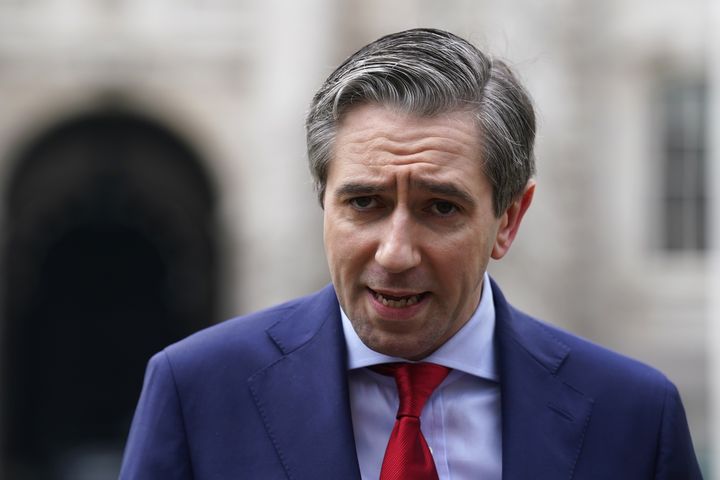
Alcohol Action Ireland urged Simon Harris not to ‘betray’ health and democratic processes by pushing back the measure
When the system is introduced, alcoholic drinks will be required to carry health warnings, including the risk of liver disease and warnings against consuming alcohol when pregnant.
Labels will also have to carry the number of calories in the drink and the grammes of alcohol in the product.
The regulations were signed into law in 2023, and gave businesses a three-year lead time to prepare for the changes.
The new standardised labels were expected to be introduced by May 22, 2026.
However, this timeline is now in doubt. In response to a question from Fine Gael TD Naoise Ó Muirí, the Tánaiste said the timeline was under consideration.
“I think this is something we do need to give consideration to in terms of the timeline for implementation,” Mr Harris said in the Dáil.
Mr Harris said this was because of the ongoing economic uncertainty internationally as a result of US President Donald Trump’s trade tariffs.
“We find ourselves in a very new trade environment and we always say we have try and control what we can control,” Mr Harris said.
While Mr Harris said he could not confirm what decision the Government would make, he said the timeline should be considered due to “concerns being expressed”.
“This is certainly something that merits at least considering in that space when we hear the concerns being expressed,” he said.
“I do think this falls into that category. I’m not in a position to say today what the exact decision Government will make but I can say the timeline around implementation is under consideration.”
Alcohol Action Ireland said it was “shocked” by the Tánaiste’s comments.
AAI chief executive Sheila Gilheany said: “At best it seems the Tánaiste has been duped by the alcohol industry’s campaign of industry misinformation, at worst it looks like he is willing to put the profits of shareholders in alcohol companies before the health and wellbeing of Irish citizens.
“Labelling of alcohol products is a health issue and has nothing to do with Ireland’s exports as the regulations only apply to products sold in Ireland.
“While in relation to imports, or home-produced products, the legal onus is on retailers, not producers/manufacturers, to ensure products are labelled. Therefore, a supermarket, or off-licence, can simply add a sticker to the product. Linking labelling to the ‘trading environment’ is an industry red-herring and it should be called out as such by politicians.”
She said the “modest” labels had been extensively discussed for years and gone through all the proper notification processes internationally, and are due to come into effect in May 2026.
“However, they have been vehemently opposed by the alcohol industry which is using every possible tactic to derail them,” said Ms Gilheany.
“It is deeply disappointing that Simon Harris, who as Minister for Health steered through the Public Health (Alcohol) Act in 2018 which gave rise to the regulations, now appears to have fallen for industry spin. During the many years of discussion on the legislation, Simon Harris, saw at first hand the ferocious lobbying by the alcohol industry against any measure which seeks to improve public health. Previous tactics have included denying the health risks from alcohol. Claims now about trading environments should be taken with a large pinch of salt.”
Ms Gilheany added that since the idea of a delay was first raised by Finance Minister Paschal Donohoe last month, more than 75 health, social and community organisations, academics and advocates have come together to voice strong opposition to the move, writing an open letter to the Taoiseach, the Tánaiste and current Health Minister Jennifer Carroll MacNeill, opposing any delay.
Last month Enterprise Minister Peter Burke said the changes were being examined as the Government looked to protect the competitiveness of Irish businesses.
Speaking on Newstalk, Mr Burke was asked whether the labels on alcohol products would go ahead or if a pause was being considered.
“[The regulations] are currently under consideration. Obviously, the regulations come from the Department of Health, but we have a very close eye on our competitiveness,” he said.
In April, Mr Burke brought a proposal to the Cabinet Subcommittee on the Economy which included a competitiveness strategy as well as a number of areas where the government could achieve “quick wins” for businesses.
“There’s a number of key areas, I think, where we can get quick wins now and try and get them in train before the summer,” Mr Burke said.
“That will send a very strong signal to businesses that we’re very serious about our competitive piece,” he added.
#Alcohol #health #labels #delayed #Tánaiste #campaigners #warn #falling #industry #spin







